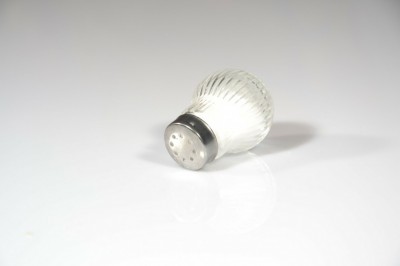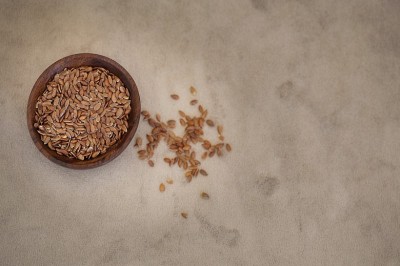
Beta-Sitosterol and Prostate Health
Beta-sitosterol is a phytosterol or plant sterol. The structure of beta-sitosterol is similar to that of cholesterol. There are many plant sources of beta-sitosterol such as wheat germ, rice bran, flax seeds, peanuts, soybeans, pumpkin seeds and corn oil.
From around the age of 45, the number of cells in the prostate gland begins to enlarge in most men. This growth is called benign prostatic hyperplasia, or BPH for short. Enlargement of the prostate gland squeezes the urethra. This enlargement causes an obstruction to the urinary flow. Symptoms include difficulty when starting to urinate and dribbling after urination. The bladder may feel full even after urinating and the need to "go" can be frequent and urgent during the day and night causing lack of sleep, tiredness, irritability, not to mention hampering normal activities.
Aging is the main cause of an enlarged prostate gland.1 However, hormones may play a role. Testosterone is converted into another, more powerful male hormone, dihydrotestosterone (DHT) in the prostate cells. DHT is responsible for triggering the division of prostate cells so their numbers increase. Levels of DHT are known to be 5 times higher in enlarged prostate glands than in those of a normal sized prostate. If the conversion of testosterone to DHT is prevented, BPH may not occur and may even be reversed once it has developed.
Beta-sitosterol may work for an enlarged prostate by inhibiting an enzyme called 5-alpha-reductase, blocking the conversion of testosterone into DHT (dihydrotestosterone), thereby decreasing the amount of DHT. Since DHT is considered to be responsible for the enlargement of the prostate, beta-sitosterol may help to support normal prostate size.
There are numerous double blind studies on the effects of beta-sitosterol on benign prostate hypertrophy.
- The Journal of the American Medical Association (1998) reported a review of 31 years of studies of 18 different trials involving 2,939 men in total who were treated for BPH with strong extracts of saw palmetto containing beta-sitosterol. The conclusion: "The evidence suggests that Serenoa repens (saw palmetto) improves urologic symptoms and flow measures. 2
- The British Journal of Urology reported a study of 177 men for 6 months who suffered from BPH. Thirty-two references were cited to substantiate their research. The conclusion: "These results show that beta-sitosterol is an effective option in the treatment of BPH.3 and 4
- The Lancet, reported a study using pure beta-sitosterol with 200 men half of whom received a placebo over the course of a year. The conclusion: "Significant improvement in symptoms and urinary flow parameters show the effectiveness of beta-sitosterol in the treatment of BPH.5
- The Current Therapeutic Research (1994) reported a study done at the University of Brussels, Belgium using an extract standardized for beta-sitosterol for six weeks. The conclusion: "Traditional parameters for quantifying prostatism, such as the International Prostate Symptom Score, the quality of life score, urinary flow rates, residual urinary volume, and prostate size were found to be significantly improved after only 45 days of treatment. After 90 days of treatment, a majority of patients (88%) and treating physicians (88%) considered the therapy effective.6
More studies have been conducted and are currently being conducted, all of which indicate that beta-sitosterol may be useful in helping to sustain prostate health and in significantly decreasing symptoms of patients suffering from BPH.
Beta-sitosterol has no known side effects. Beta-sitosterol is a nutrient found in our diet though not in sufficient doses through diet alone. For example, you would have to eat 4 lbs of palmetto berries to get 600 mg of beta-sitosterol which is the suggested dietary allowance. Super Beta Prostate contains pure mixed sterols from natural plant sources along with other herbs, essential vitamins and minerals to support prostate health and a healthy sex life.
References:
- Glynn RJ, Campion EW, Bouchard GR, Silbert JE. The development of benign prostatic hyperplasia among volunteers in the Normative Aging Study. Am J Epidemiol. 1985 Jan;121(1):78-90. PMID 3964994
- Wilt TJ, Ishani A, Stark G, MacDonald R, Lau J, Mulrow C. Saw palmetto extracts for treatment of benign prostatic hyperplasia: a systematic review, JAMA 1998 Nov 11; 280(18):1604-9.
- Klippel KF, Hiltl DM, Schipp B. A multicentric, placebo-controlled, double-blind clinical trial of beta-sitosterol (phytosterol) for the treatment of benign prostatic hyperplasia. German BPH-Phyto Study group. Br J Urol. 1997 Sep;80(3):427-32. PMID 9313662
- Berges RR, Kassen A, Senge T. Treatment of symptomatic benign prostatic hyperplasia with beta-sitosterol: an 18-month follow-up. BJU Int. 2000 May;85(7):842-6. PMID 10792163
- Berges RR, Windeler J, Trampisch HJ, Senge T. Randomised, placebo-controlled, double-blind clinical trial of beta-sitosterol in patients with benign prostatic hyperplasia. Beta-sitosterol Study Group. Lancet. 1995 Jun 17;345(8964):1529-32. PMID 7540705
- Homma Y, Imajo C, Takahashi S, Kawabe K, Aso Y. Urinary symptoms and urodynamics in a normal elderly population. Scand J Urol Nephrol Suppl. 1994;157:27-30. PMID 7939451






















